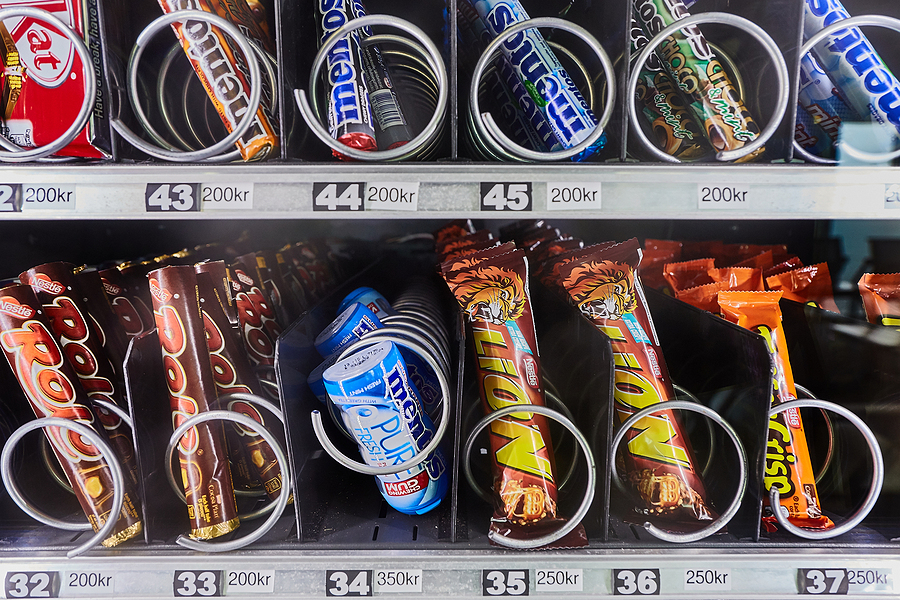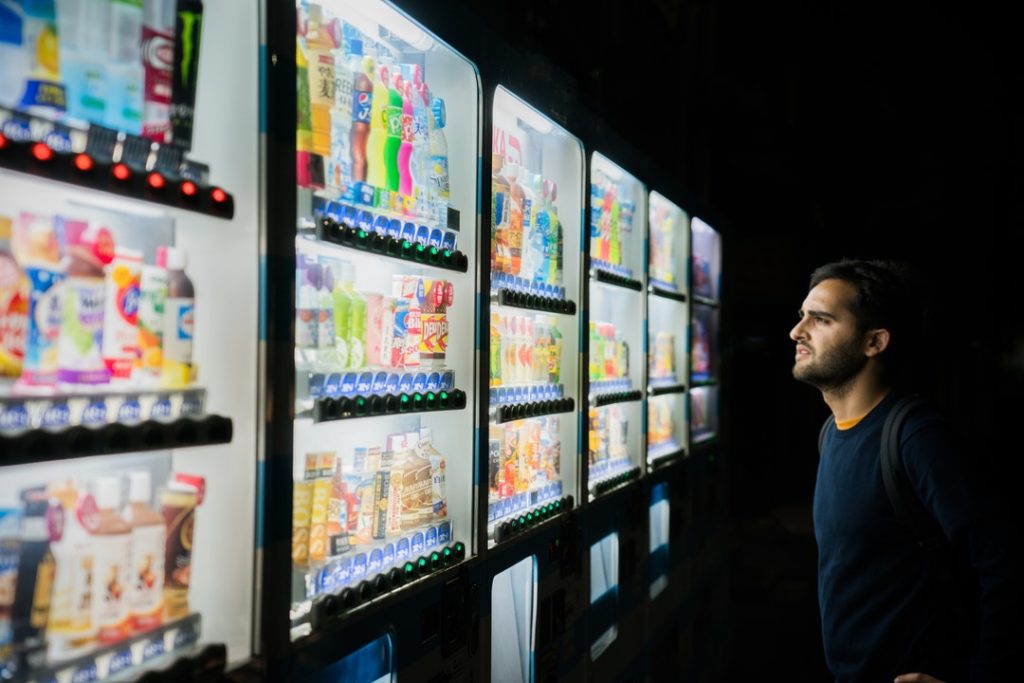
How Do Vending Machine Services Work?
For many of us, vending machines are a convenient solution to sudden hunger pangs, be it at offices, colleges, or public places. But have you ever wondered about the mechanisms that power these automated selling machines or the services that ensure they remain stocked and functional? In this blog, we’ll delve deep into how vending machine services work, offering a comprehensive view of their operations, business models, and maintenance processes.
1. Introduction to Vending Machine Services
Vending machine services refer to the complete range of services associated with operating and maintaining vending machines. This includes everything from the procurement and installation of machines to restocking, maintenance, and financial operations.
2. Types of Vending Machines
Before we delve into the specifics, it’s essential to note that vending machines come in various types:
- Food and Beverage Machines: These dispense snacks, cold drinks, coffee, etc.
- Specialty Vending Machines: Dispensing electronics, personal care items, or even books.
- Ticket Machines: Found at transport hubs for train, metro, or bus tickets.
- ATMs: Technically, these are vending machines too, dispensing cash instead of products.
3. Setting Up a Vending Machine
A vending machine service begins with identifying a location. Factors like foot traffic, demographics, and the surrounding amenities play a crucial role in determining the potential success of a vending machine.
Once a location is determined:
- The vending service provider procures the machine.
- They work with product suppliers or manufacturers to stock the machine initially.
- The machine is then connected to power sources and set up to accept payments.

4. Stocking and Inventory Management
Ensuring the machine remains stocked is one of the core services:
- Regular Inventory Checks: Service providers routinely check the inventory levels.
- Product Rotation: Based on demand, products are rotated to ensure freshness and meet user preferences.
- Data Analytics: Modern vending machines use data analytics to understand buying patterns, which aids in efficient restocking.
5. Payment and Revenue
The evolution of technology has expanded payment methods in vending machines:
- Cash and Coin Operations: Traditional but still widely used.
- Card Payments: Many modern machines accept debit and credit cards.
- Contactless and Mobile Payments: NFC technology allows users to pay using mobile wallets.
The revenue generated is then split between the vending machine service provider and the location owner based on pre-agreed terms.
6. Maintenance and Repairs
Maintenance ensures machines function smoothly:
- Regular Checks: Vending service providers conduct regular diagnostic checks to prevent malfunctions.
- On-Call Repairs: In case of a malfunction, technicians are dispatched to fix the issue.
- Upgrades: Older machines may be upgraded with newer payment systems or features.
7. The Business Model of Vending Services
The success of a vending machine service lies in its business model:
- Direct Ownership: Some businesses own, stock, and maintain their machines.
- Franchising: Individuals can operate machines under a larger brand, adhering to its standards and guidelines.
- Commission-Based: In some setups, vending machine companies install machines at no cost to the location owner but share a percentage of the profits.
8. Challenges in Vending Machine Services
Like any other business, vending machine services face challenges:
- Machine Vandalism: Machines, especially in public places, are prone to damage or theft.
- Evolving Consumer Preferences: Keeping up with changing tastes and dietary requirements.
- Operational Costs: Energy costs, especially for machines that need to maintain low temperatures.
9. The Future of Vending Machine Services
With advancements in technology:
- IoT-Enabled Machines: Real-time monitoring of stock and machine health.
- Customized Vending Experiences: Machines may offer personalized product recommendations.
- Sustainability: Eco-friendly machines that use solar power or offer recyclable packaging.
Vending machine services, while seemingly straightforward, are a blend of logistics, technology, and customer service. As technology and consumer preferences evolve, so will vending services, promising more personalized and efficient experiences in the future.

What Locations Would a Vending Machine Do Well in?
The success of a vending machine largely depends on its placement. It’s the principle of ‘right place, right time’ in action; if a vending machine is strategically placed where there’s high foot traffic and a specific need for the products it offers, success is likely. Here’s a breakdown of optimal locations for vending machines:
Office Buildings and Workspaces
Employees often look for quick snacks or drinks, especially during breaks. Vending machines in office pantries or lobbies offer a convenient solution, saving employees a trip to the nearby cafe or store.
Educational Institutions
Schools, colleges, and universities are bustling with students who might need a quick snack between classes or a caffeine fix to keep them going. Given the right product mix – perhaps healthier options for schools – vending machines can thrive in educational settings.
Transport Hubs
Airports, bus stations, and train stations are filled with travelers who might be looking for a quick bite or a drink. With long wait times or transit delays, having a vending machine can be a lifesaver.
Hotels and Accommodations
While many hotels have mini-bars or small snack sections in their rooms, having vending machines on various floors or in the lobby can provide guests with more options and convenience, especially during late hours.
Hospitals and Medical Centers
Hospitals have visitors at all hours, and not all of them might want to go to the hospital cafeteria. Vending machines, especially those stocked with healthy snacks, can be an excellent addition to waiting areas.
Gym and Fitness Centers
Post-workout, many might look for protein bars, energy drinks, or even bottled water. Placing vending machines in the reception area or exit can cater to fitness enthusiasts looking for a quick refuel.

Shopping Malls
Shoppers often need a quick energy boost, especially during long shopping trips. Strategically placed machines near seating areas, kid zones, or entrances and exits can attract a lot of customers.
Public Parks and Recreation Areas
Visitors might want refreshments, especially during sunny days. Vending machines that offer cold drinks, ice creams, or even small packaged snacks can be popular in these areas.
Apartment Complexes
For large residential complexes, especially those slightly away from commercial areas, having vending machines in common areas can provide residents with a quick solution for sudden cravings.
Tourist Attractions
Places with high tourist footfall, like museums, zoos, or heritage sites, can benefit from vending machines. Tourists often look for quick snacks or drinks to keep them going as they explore.
While the aforementioned are some of the most promising locations, the key is to assess the specific needs of the people frequenting these areas. With the right location combined with the right mix of products, vending machines can become a popular and profitable venture.

Are Vending Machines Profitable?
The profitability of vending machines is often a point of curiosity, especially for individuals and businesses considering the addition of one or more machines to their locations. The answer, however, isn’t a straightforward “yes” or “no.” The profit potential largely depends on various factors, including the location, the type of products sold, machine maintenance costs, and the frequency of restocking. Let’s delve into the economics of vending machines to gauge their potential profitability.
Location Matters
As previously discussed, location is paramount. A machine placed in an area with high foot traffic and in proximity to waiting or rest areas is likely to garner more sales. Think of an airport terminal or a busy office corridor.
Product Selection
The type of products stocked can significantly influence earnings. For instance, beverages generally have better profit margins than snacks. Similarly, specialty vending machines, which vend higher-priced items like tech gadgets or personal care products, can yield more profits, albeit at a higher initial investment.
Costs to Consider
Understanding the costs associated with vending machines is essential:
- Initial Purchase or Lease: Depending on the type and functionality, a vending machine can cost anywhere from $3,000 to $10,000 or more.
- Restocking: This includes the cost of goods sold. For popular machines, restocking might be frequent, leading to bulk purchasing benefits.
- Maintenance and Repairs: Machines need regular maintenance, and any breakdowns can incur additional costs.
- Operational Costs: This includes electricity and any rental space costs, if applicable.

Revenue Streams
The primary revenue is, of course, from the sales of the products. On average, a well-placed vending machine can generate around $50 to $100 per week in gross revenue. However, machines in prime locations with high-demand products can earn substantially more, sometimes exceeding $500 or even $1,000 per week.
Profit Margins
The profit margin typically ranges from 20% to 50%, depending on factors like product type and machine location. So, if a machine is generating $400 a month, the profit after all expenses could range from $80 to $200. It’s worth noting that beverage vending machines often have higher margins than snack machines.
Splitting Profits
If the vending machine is placed in a location you don’t own, it’s common to split profits with the property owner. The terms of these agreements vary but often range from a 70/30 to 50/50 split in favor of the machine owner.
Additional Revenue Opportunities
Modern vending machines, with touch screens and interactive features, can also serve as advertising platforms. Some businesses pay to display their ads on these screens, providing the machine owner with an additional revenue stream.
While vending machines can be profitable, it’s essential to manage expectations. They are rarely a get-rich-quick scheme. The key to success lies in diligent research, smart placement, regular maintenance, and staying attuned to customer preferences. For those willing to invest time and effort, vending machines can indeed be a lucrative addition to their revenue portfolio.

How Much Does It Cost to Invest in a Vending Machine?
When considering the addition of a vending machine to your business or location, understanding the investment required is crucial. The costs can vary based on numerous factors, such as the type of machine, its capabilities, and the products it dispenses. In this section, we’ll provide a comprehensive breakdown of the costs associated with investing in a vending machine.
Initial Machine Cost
The primary expenditure is the machine itself. Depending on its features and the kind of products it’s designed to vend, the costs can vary.
- Basic Snack Machines: These are the most common type of vending machines, and they typically range from $2,000 to $3,500.
- Beverage Machines: They can cost anywhere from $3,000 to $5,000 depending on their capacity and cooling features.
- Specialty Vending Machines: Machines that vend items like electronics, organic foods, or gourmet coffee can have a much higher starting cost, ranging from $7,000 to $20,000 or more.
Installation and Setup
While some suppliers might offer free installation, others might charge a fee, especially if the machine’s placement requires extra work or specialized equipment. Costs can range from $100 to $600, depending on the complexity.
Stocking and Inventory
The initial stock is a crucial investment. For snack and beverage machines, this could be in the ballpark of $500 to $1,000 to fill the machine. For specialty machines, initial inventory costs will vary depending on the products.
Licensing and Permits
Depending on your region, you might need to obtain specific permits or licenses to operate a vending machine, especially if it’s placed in a public space. These costs can range from $50 to $400 annually, though they might be higher in certain cities or for specific products.
Maintenance and Repairs
While not an immediate cost, setting aside funds for potential maintenance and repairs is wise. A maintenance contract might cost around $100 to $200 per year, whereas out-of-pocket repairs can vary based on the issue but might average around $100 to $300 per occurrence.

Operational Costs
These include electricity, which for a standard machine might range from $20 to $50 per month, and any rental costs if the machine is placed in a space you don’t own.
Additional Features
Modern vending machines come with features like credit card readers, touch screens, or telemetry systems. Incorporating these can add anywhere from $100 to $500 to the initial cost, but they can also increase sales and provide better user experience.
In total, the initial investment for a vending machine can start from as low as $3,000 for basic models and can go upwards of $25,000 for high-end specialty machines, once all associated costs are considered. It’s crucial to conduct thorough research, understand all the costs, and project potential revenues before diving into the vending machine business. A well-informed decision can ensure a healthy return on investment in the long run.
Types of Vending Machines Available
Vending machines have evolved significantly over the years, branching out from the traditional snacks and sodas to a variety of products and services. This diversity allows entrepreneurs to cater to specific niches and customer needs. Here’s a look at some of the prevalent types of vending machines available in the market.
Traditional Snack Machines
As the name suggests, these machines primarily vend snacks. From chips to candy bars, they’re a common sight in offices, schools, and transport hubs. They offer quick bites for those on the move or in need of a little pick-me-up during the day.
Beverage Machines
These machines cater to thirst quenchers, providing an array of options from sodas and iced teas to juices and bottled water. Many modern beverage machines also have cooling systems to ensure drinks are served chilled.
Coffee Vending Machines
Increasingly popular in offices and public places, these machines provide a range of hot beverages. Options can include different types of coffee, hot chocolate, and teas, providing a quick caffeine fix or a warm drink on a chilly day.
Food and Fresh Food Machines
A step beyond the snack machine, these vending machines provide more substantial food options. This could be sandwiches, salads, or even hot foods, depending on the machine’s capabilities. They’re ideal for locations where people might need a more filling meal option, like airports or hospitals.

Specialized Product Machines
These machines can vend a plethora of unique products. From electronics and gadgets, like headphones or chargers, to personal care items like sanitary products or toiletries, the options are vast. There are even vending machines that dispense books or toys!
Ice Cream and Frozen Food Vending
Perfect for warmer locations or places frequented by families and children, these machines offer a variety of frozen treats, from simple ice pops to more gourmet ice cream options.
Office Supplies Machines
Often found in schools, universities, or business centers, these machines vend essential office supplies. Think pens, notepads, flash drives, or even calculator batteries.
Ticket and Service Machines
These are more service-oriented than product-oriented. For instance, a ticket vending machine at a train station or a metro card top-up machine. They can also be machines that print photos or provide other specific services.
Eco-friendly and Recycling Vending Machines
A relatively new entry to the market, these machines offer environmentally friendly products or serve as collection points for recyclables. In some places, users can insert empty bottles or cans and receive a small monetary reward, promoting recycling.
Vending machines, with their versatility and convenience, have carved a niche in various sectors. Whether you’re an entrepreneur eyeing the vending machine business or a business looking to provide added convenience for your employees or customers, there’s likely a vending machine that fits the bill. Always consider the target audience and location when choosing the type of machine to invest in.

The Evolution and Technological Advancements in Vending Machine Services
Over the years, the vending machine industry has undergone significant transformation. These machines, once seen as mere snack and drink dispensers, have now evolved into sophisticated retail solutions, driven by rapid technological advancements and changing consumer behaviors. In this section, we’ll explore the evolution of vending machine services and how technology has played a pivotal role in reshaping the industry.
A Glimpse into the Past
Vending machines are not a new concept. The earliest known vending machine dates back to ancient Egypt, where a device was used to dispense holy water in exchange for a coin. The modern era of vending started in the late 19th century with postcard vending machines in London and gum dispensing machines in New York.
Rise of Cashless Payments
One of the most notable changes in recent years is the adoption of cashless payment methods. Modern vending machines are equipped with credit card readers, mobile payment options, and even cryptocurrency payment capabilities. This not only offers consumers more convenience but also ensures seamless transactions and potentially higher sales for operators.
Smart Vending Machines
With the integration of IoT (Internet of Things) technology, vending machines have become smarter. They can now track inventory levels in real-time, notify operators when stocks are low, or even when there’s a malfunction. This predictive maintenance feature can reduce downtime and lost sales.
Personalized User Experience
Some of the newer models are equipped with AI-driven touchscreen interfaces that can offer product recommendations based on past purchases or even the current weather. For example, on a hot day, the machine might highlight a cold beverage option on its display.

Eco-conscious Machines
Sustainability is a growing concern, and vending machine services are not lagging. Energy-efficient machines, solar-powered options, and those that reduce waste by allowing users to use their containers, like coffee machines that fill reusable cups, are gaining traction.
Healthier Options
Addressing a growing demand for healthy snacks and drinks, many vending services are now offering a range of organic, vegan, or gluten-free products. This shift is particularly noticeable in schools, hospitals, and fitness centers.
Interactive Vending
Brands are leveraging vending machines as an interactive marketing tool. From machines that vend products based on a social media post to those that require a dance or a song for a snack, interactive vending creates buzz and engagement.
Vending as a Service (VaaS)
Taking a cue from the software industry’s ‘as a Service’ model, some companies are now offering Vending as a Service. This means businesses can have a vending machine on their premises without the initial investment, paying a monthly fee instead, much like a lease.
The vending machine industry has continually adapted to societal changes and technological advancements. As we move forward, it’s clear that the potential for innovation is vast. From integrating augmented reality to serving niche markets with unique products, the vending machine of the future might look very different from the coin-operated snack dispensers of yesteryears. For entrepreneurs and businesses alike, staying updated with these trends and being open to adaptability could be the key to thriving in the evolving world of vending machine services.

